Often, questions raise curiosity over the intention. But none of these issues seem to have bothered Parliamentarians. The expose was waiting to happen.
NEW DELHI: The most common reply to questions put up in Parliament is "No Sir" and "Does Not Arise." And the second most popular would be "Yes Sir." Not all questions put up by Members of Parliament get answered. Those answered go through a rigmarole of officialdom, through layers of bureaucracy, checking, final approval etc at senior levels, and often to ministers concerned, before it reaches Parliament. It is supposed to be a sacrosanct reply, telling only the truth, given to country's highest democratic body.
But answers are often very a sophisticated play of words. Answers often hide much more than what they reveal. They often skip the issue without lying. The "Yes Sir" and "No Sir" answers are the end result of a detailed exercise.
The bureaucratic word play in answers is not the only problem. Quite often, questions raise curiosity over the intent behind the question. But none of these issues seem to have bothered the Parliamentarians till now. And the expose was waiting to happen.
There is something wrong with the very system of parliamentary questions and answers. Not that politicians are not aware of the problem. It is part of central hall chitchat, newsroom gossip but never officially spelt out. Today's expose in a way was a response to a system that was failing to reinvent with time.
In this session, a Member of Parliament asked if after the Navy's aircraft carrier INS Vikrant was converted into a museum in Mumbai, whether it is left with only one carrier in service called Samrat. The question went through bureaucratic formalities and was part of the answers. The reality is that India does not have a carrier called Samrat, and it is but common knowledge that the Navy's only carrier is Viraat. During a session few months back, another member, a former film star, asked detailed questions about the Prime Minister's trip to Paris, details of defence contract negotiated etc. The fact was that the PM was yet to visit France when the question was raised.
A closer look at these 11 people’s representatives
Cobrapost.com approached the following MPs posing to be representatives of a fictitious organisation called North Indian Small Manufacturer's Association (NISMA). The operation, spread over eight months, could get more than 60 questions submitted out of which 25 were selected to be tabled in the parliament. Some MPs even quoted a sum of 5-6 lakhs per year as a sort of retainer in exchange for which, NISMA could ask as many questions as they wanted.
Manoj Kumar
(RJD, Palamau, Jharkhand) Rs 110,000
An agriculturist by profession, he holds a BA degree. A two-term member of the Jharkhand assembly. Was first elected MP in 2004
Narendra Kumar Kushwaha
(BSP, Mirzapur, UP) Rs 55,000
A social worker by occupation, he has a BA degree. A first time member of the Lok Sabha, he was elected in 2004
YG Mahajan
(BJP, Jalgaon Maharsahtra) Rs 35,000
An agriculturist by profession, he holds a BEd degree. He first made a mark in politics in 1992. Elected MP in 1999 and in 2004
Suresh Chandel
(BJP, Hamirpur, HP) Rs 30,000
An agriculturist, holds a masters degree. For long involved in BJP politics at the state level. First elected as MP in 1998, then in 1999 and 2004.
Chhatrapal Singh Lodha, Rajya Sabha
(BJP, Orissa) Rs 15,000
He was nominated to the Rajya Sabha in 2004. He lost the 1999 Lok Sabha election.
Anna Saheb M.K. Patil
(BJP, Erandol, Maharastra) Rs 45,000
A four-term Lok Sabha MP. Holds a chemical engineering degree from Pune University. He also studied at the Louisiana State University
Lal Chandra Kol
(BSP, Robertsganj, UP) Rs 35,000
An agriculturist, he studied up to the Class XII. A first timer, he entered parliament in 2004
Pradeep Gandhi
(BJP, Rajnandgaon, Chhattisgarh) Rs 55,000
A businessman by profession, he is a graduate. He was elected to both the Chhattisgarh assembly and the Lok Sabha in 2004 but opted for the latter
Raja Ram Pal
(BSP, Bilhaur, Uttar Pradesh) Rs 35,000
An advocate, he served as a legislator in Uttar Pradesh 1996-2002 and was first elected to the Lok Sabha in 2004
Chandra Pratap Singh
(BJP, Sidhi, Uttar Pradesh) Rs 35,000
An agriculturist by occupation, he studied up to the higher secondary level. He began his political career in 1978 as a sarpanch. First elected to Lok Sabha in 1999 and was re-elected in 2004.
Ramsevak Singh
(Congress, Gwalior Madhya Pradesh) Rs 50,000
An agriculturist by profession, he has studied up to class IX. He was first elected to the Lok Sabha in 2004.
Yet all of them may not be guilty in the eyes of law
Rakesh Bhatnagar
NEW DELHI: Lawmakers who had succeeded in raising certain questions at a price can't be tried in a court of law but those who had taken the bribe but failed to do the job could be prosecuted under the Prevention of Corruption Act. That's the law explained by a constitution Bench of the Supreme Court in April 1998 while deciding former Prime Minister P V Narasimha Rao's appeal against the Delhi high court judgment in the infamous JMM MPs bribery case.
A bribe giver does not enjoy protection under Article 105(2) of the Constitution whereas a bribed legislator does if he or she has fulfilled the obligation during the proceedings of the House, like raising the question or casting the vote on the floor of the House in favour of the bribe giver.
The provision for immunity from prosecution envisages that "No MP shall be liable to any proceedings in any court in respect of anything said or any vote given by him in Parliament or any committee thereof, and no person shall be so liable in respect of the publication by or under the authority of either House of Parliament of any report, papers, votes or proceedings".
A Bench headed by former Chief Justice S P Bharucha had said, "we are acutely conscious of the seriousness of the offence that the alleged bribe taker (JMM MPs and Ajit Singh) are said to have committed. If true, they bartered a most solemn trust committed to them by those they represented. By reason of the lucre that they received, they enabled a Government to survive. Even so, they are entitled to the protection that the Constitution plainly affords them. Our sense of indignation should not lead us to construe the Constitution narrowly, impairing the guarantee to effective Parliamentary participation and debate."
But they also held that "the alleged bribe takers, other man Ajit Singh, have the protection of Article 105(2) and are not answerable in a court of law for the alleged conspiracy and agreement. The charges against them must fail. Ajit Singh, not having cast a vote on the no-confidence motion, derives no immunity from Article 105(2)".
Besides Rao, former ministers Satish Sharma, Buta Singh (governor of Bihar now), V Rajeswar Rao, N . Ravanna, Ram Linga Reddy, all MPs, M Veerappa Moily the then Chief Minister of Karnataka, DK Adikeshavulu, M Thimmegowda and former Haryana Chief Minister Bhajan Lal faced the prosecution as bribe givers while Ajit Singh was tried for accepting the bribe.
![submenu-img]() Firing at Salman Khan's house: Shooter identified as Gurugram criminal 'involved in multiple killings', probe begins
Firing at Salman Khan's house: Shooter identified as Gurugram criminal 'involved in multiple killings', probe begins![submenu-img]() Salim Khan breaks silence after firing outside Salman Khan's Mumbai house: 'They want...'
Salim Khan breaks silence after firing outside Salman Khan's Mumbai house: 'They want...'![submenu-img]() India's first TV serial had 5 crore viewers; higher TRP than Naagin, Bigg Boss combined; it's not Ramayan, Mahabharat
India's first TV serial had 5 crore viewers; higher TRP than Naagin, Bigg Boss combined; it's not Ramayan, Mahabharat![submenu-img]() Vellore Lok Sabha constituency: Check polling date, candidates list, past election results
Vellore Lok Sabha constituency: Check polling date, candidates list, past election results![submenu-img]() Meet NEET-UG topper who didn't take admission in AIIMS Delhi despite scoring AIR 1 due to...
Meet NEET-UG topper who didn't take admission in AIIMS Delhi despite scoring AIR 1 due to...![submenu-img]() DNA Verified: Is CAA an anti-Muslim law? Centre terms news report as 'misleading'
DNA Verified: Is CAA an anti-Muslim law? Centre terms news report as 'misleading'![submenu-img]() DNA Verified: Lok Sabha Elections 2024 to be held on April 19? Know truth behind viral message
DNA Verified: Lok Sabha Elections 2024 to be held on April 19? Know truth behind viral message![submenu-img]() DNA Verified: Modi govt giving students free laptops under 'One Student One Laptop' scheme? Know truth here
DNA Verified: Modi govt giving students free laptops under 'One Student One Laptop' scheme? Know truth here![submenu-img]() DNA Verified: Shah Rukh Khan denies reports of his role in release of India's naval officers from Qatar
DNA Verified: Shah Rukh Khan denies reports of his role in release of India's naval officers from Qatar![submenu-img]() DNA Verified: Is govt providing Rs 1.6 lakh benefit to girls under PM Ladli Laxmi Yojana? Know truth
DNA Verified: Is govt providing Rs 1.6 lakh benefit to girls under PM Ladli Laxmi Yojana? Know truth![submenu-img]() Remember Jibraan Khan? Shah Rukh's son in Kabhi Khushi Kabhie Gham, who worked in Brahmastra; here’s how he looks now
Remember Jibraan Khan? Shah Rukh's son in Kabhi Khushi Kabhie Gham, who worked in Brahmastra; here’s how he looks now![submenu-img]() From Bade Miyan Chote Miyan to Aavesham: Indian movies to watch in theatres this weekend
From Bade Miyan Chote Miyan to Aavesham: Indian movies to watch in theatres this weekend ![submenu-img]() Streaming This Week: Amar Singh Chamkila, Premalu, Fallout, latest OTT releases to binge-watch
Streaming This Week: Amar Singh Chamkila, Premalu, Fallout, latest OTT releases to binge-watch![submenu-img]() Remember Tanvi Hegde? Son Pari's Fruity who has worked with Shahid Kapoor, here's how gorgeous she looks now
Remember Tanvi Hegde? Son Pari's Fruity who has worked with Shahid Kapoor, here's how gorgeous she looks now![submenu-img]() Remember Kinshuk Vaidya? Shaka Laka Boom Boom star, who worked with Ajay Devgn; here’s how dashing he looks now
Remember Kinshuk Vaidya? Shaka Laka Boom Boom star, who worked with Ajay Devgn; here’s how dashing he looks now![submenu-img]() DNA Explainer: How Iranian projectiles failed to breach iron-clad Israeli air defence
DNA Explainer: How Iranian projectiles failed to breach iron-clad Israeli air defence![submenu-img]() DNA Explainer: What is India's stand amid Iran-Israel conflict?
DNA Explainer: What is India's stand amid Iran-Israel conflict?![submenu-img]() DNA Explainer: Why Iran attacked Israel with hundreds of drones, missiles
DNA Explainer: Why Iran attacked Israel with hundreds of drones, missiles![submenu-img]() What is Katchatheevu island row between India and Sri Lanka? Why it has resurfaced before Lok Sabha Elections 2024?
What is Katchatheevu island row between India and Sri Lanka? Why it has resurfaced before Lok Sabha Elections 2024?![submenu-img]() DNA Explainer: Reason behind caused sudden storm in West Bengal, Assam, Manipur
DNA Explainer: Reason behind caused sudden storm in West Bengal, Assam, Manipur![submenu-img]() Firing at Salman Khan's house: Shooter identified as Gurugram criminal 'involved in multiple killings', probe begins
Firing at Salman Khan's house: Shooter identified as Gurugram criminal 'involved in multiple killings', probe begins![submenu-img]() Salim Khan breaks silence after firing outside Salman Khan's Mumbai house: 'They want...'
Salim Khan breaks silence after firing outside Salman Khan's Mumbai house: 'They want...'![submenu-img]() India's first TV serial had 5 crore viewers; higher TRP than Naagin, Bigg Boss combined; it's not Ramayan, Mahabharat
India's first TV serial had 5 crore viewers; higher TRP than Naagin, Bigg Boss combined; it's not Ramayan, Mahabharat![submenu-img]() This film has earned Rs 1000 crore before release, beaten Animal, Pathaan, Gadar 2 already; not Kalki 2898 AD, Singham 3
This film has earned Rs 1000 crore before release, beaten Animal, Pathaan, Gadar 2 already; not Kalki 2898 AD, Singham 3![submenu-img]() This Bollywood star was intimated by co-stars, abused by director, worked as AC mechanic, later gave Rs 2000-crore hit
This Bollywood star was intimated by co-stars, abused by director, worked as AC mechanic, later gave Rs 2000-crore hit![submenu-img]() IPL 2024: Rohit Sharma's century goes in vain as CSK beat MI by 20 runs
IPL 2024: Rohit Sharma's century goes in vain as CSK beat MI by 20 runs![submenu-img]() RCB vs SRH IPL 2024 Dream11 prediction: Fantasy cricket tips for Royal Challengers Bengaluru vs Sunrisers Hyderabad
RCB vs SRH IPL 2024 Dream11 prediction: Fantasy cricket tips for Royal Challengers Bengaluru vs Sunrisers Hyderabad ![submenu-img]() IPL 2024: Phil Salt, Mitchell Starc power Kolkata Knight Riders to 8-wicket win over Lucknow Super Giants
IPL 2024: Phil Salt, Mitchell Starc power Kolkata Knight Riders to 8-wicket win over Lucknow Super Giants![submenu-img]() IPL 2024: Why are Lucknow Super Giants wearing green and maroon jersey against Kolkata Knight Riders at Eden Gardens?
IPL 2024: Why are Lucknow Super Giants wearing green and maroon jersey against Kolkata Knight Riders at Eden Gardens?![submenu-img]() IPL 2024: Shimron Hetmyer, Yashasvi Jaiswal power RR to 3 wicket win over PBKS
IPL 2024: Shimron Hetmyer, Yashasvi Jaiswal power RR to 3 wicket win over PBKS![submenu-img]() Watch viral video: Isha Ambani, Shloka Mehta, Anant Ambani spotted at Janhvi Kapoor's home
Watch viral video: Isha Ambani, Shloka Mehta, Anant Ambani spotted at Janhvi Kapoor's home![submenu-img]() This diety holds special significance for Mukesh Ambani, Nita Ambani, Isha Ambani, Akash, Anant , it is located in...
This diety holds special significance for Mukesh Ambani, Nita Ambani, Isha Ambani, Akash, Anant , it is located in...![submenu-img]() Swiggy delivery partner steals Nike shoes kept outside flat, netizens react, watch viral video
Swiggy delivery partner steals Nike shoes kept outside flat, netizens react, watch viral video![submenu-img]() iPhone maker Apple warns users in India, other countries of this threat, know alert here
iPhone maker Apple warns users in India, other countries of this threat, know alert here![submenu-img]() Old Digi Yatra app will not work at airports, know how to download new app
Old Digi Yatra app will not work at airports, know how to download new app
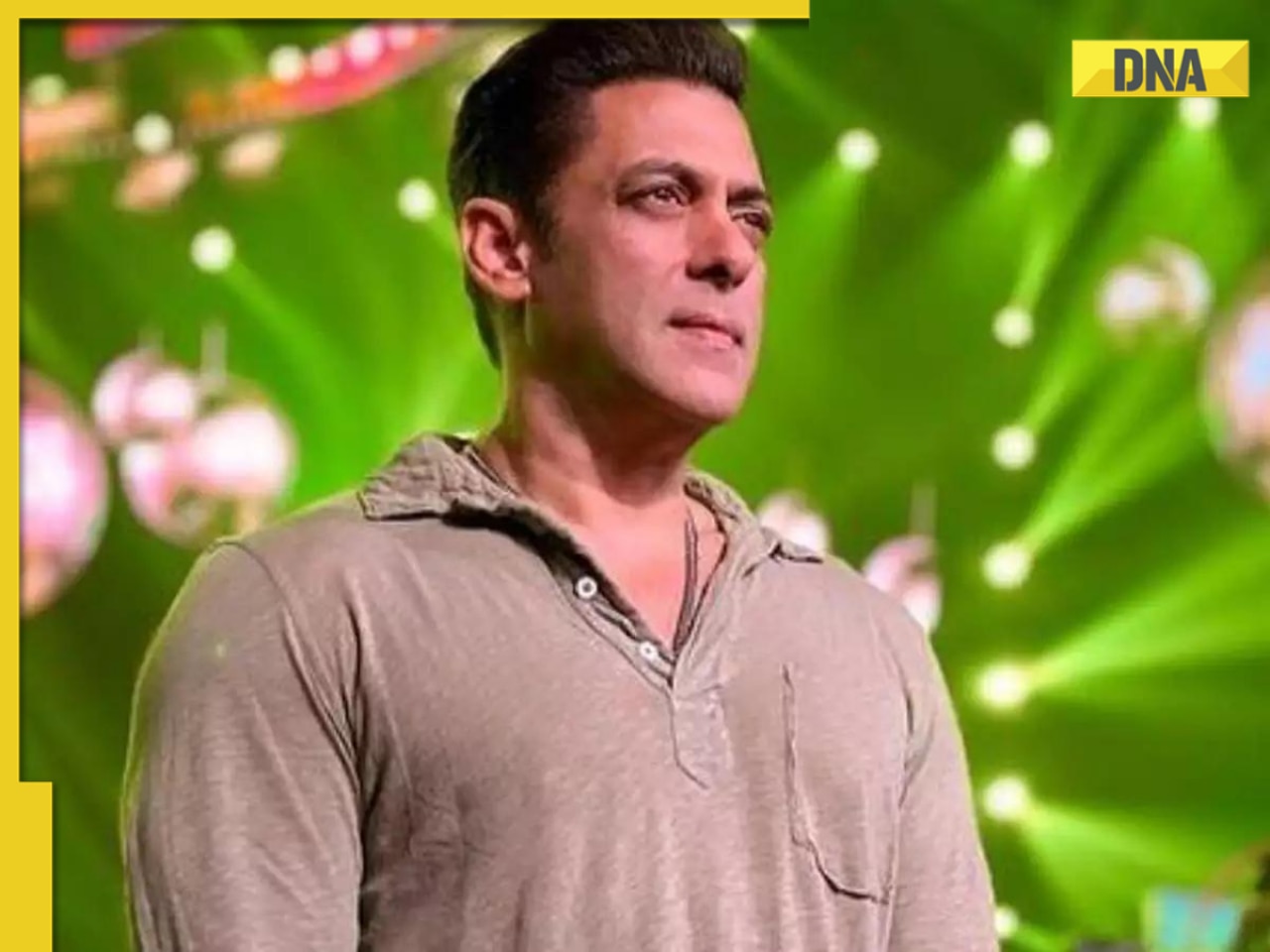
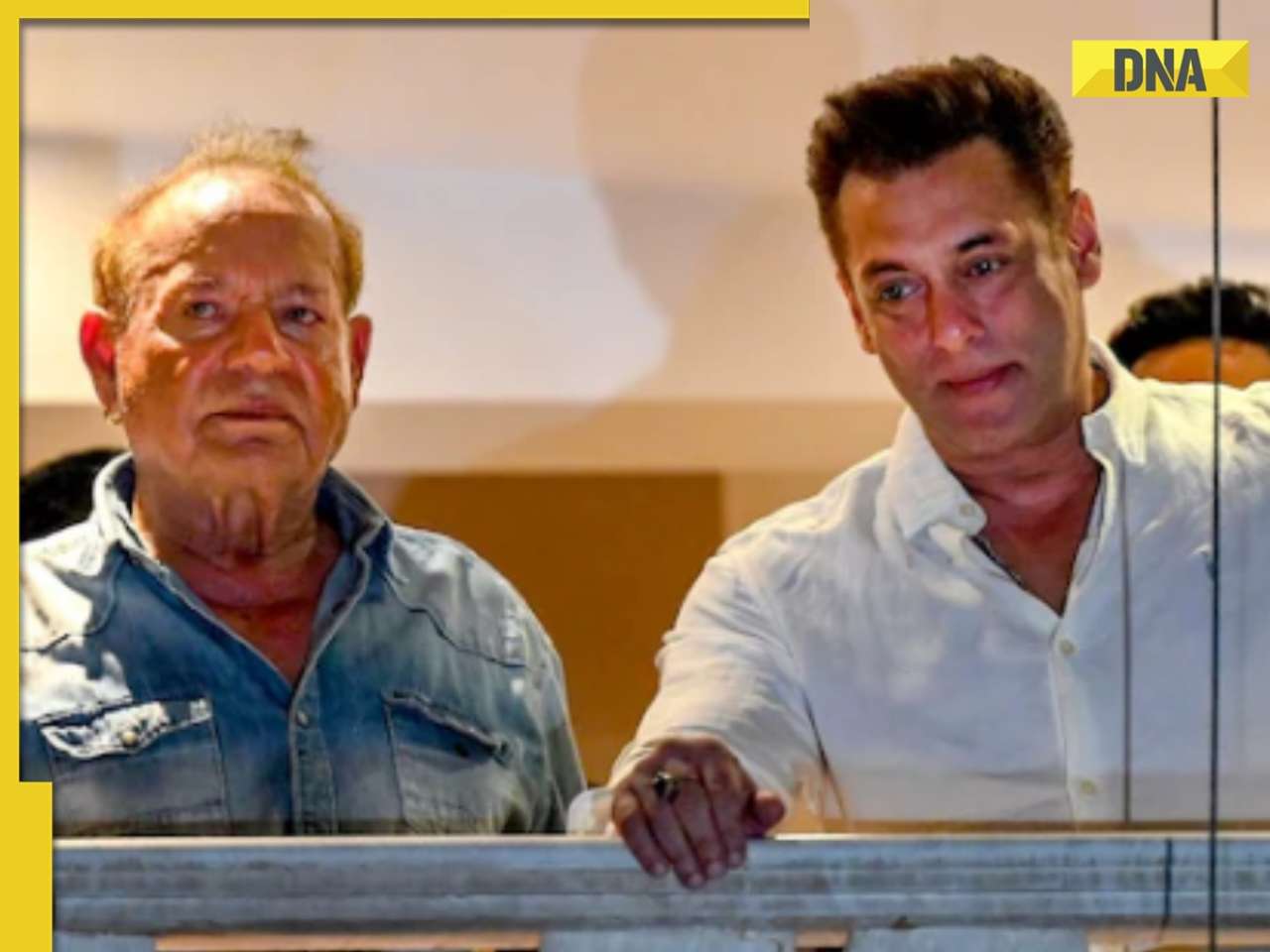
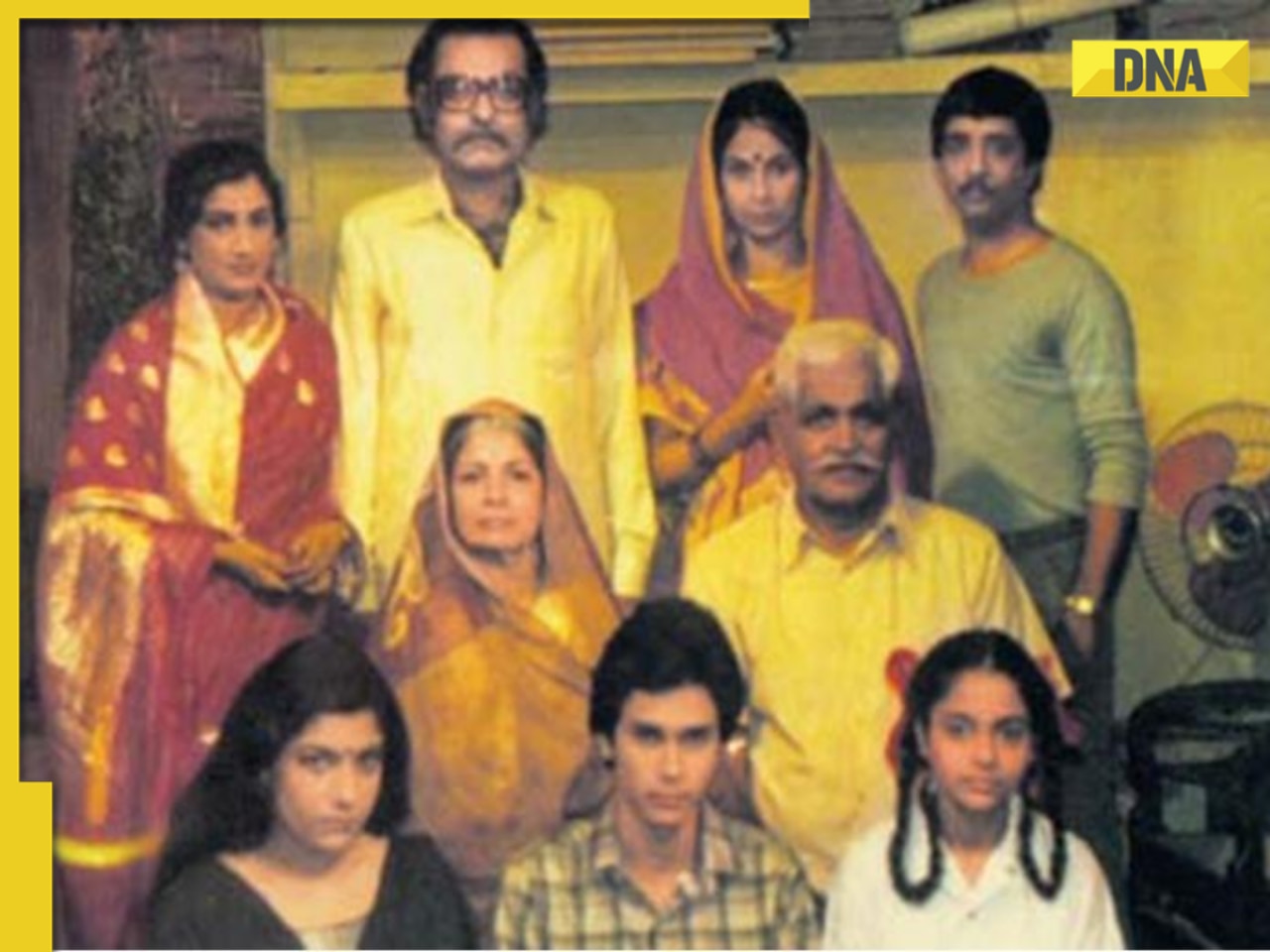
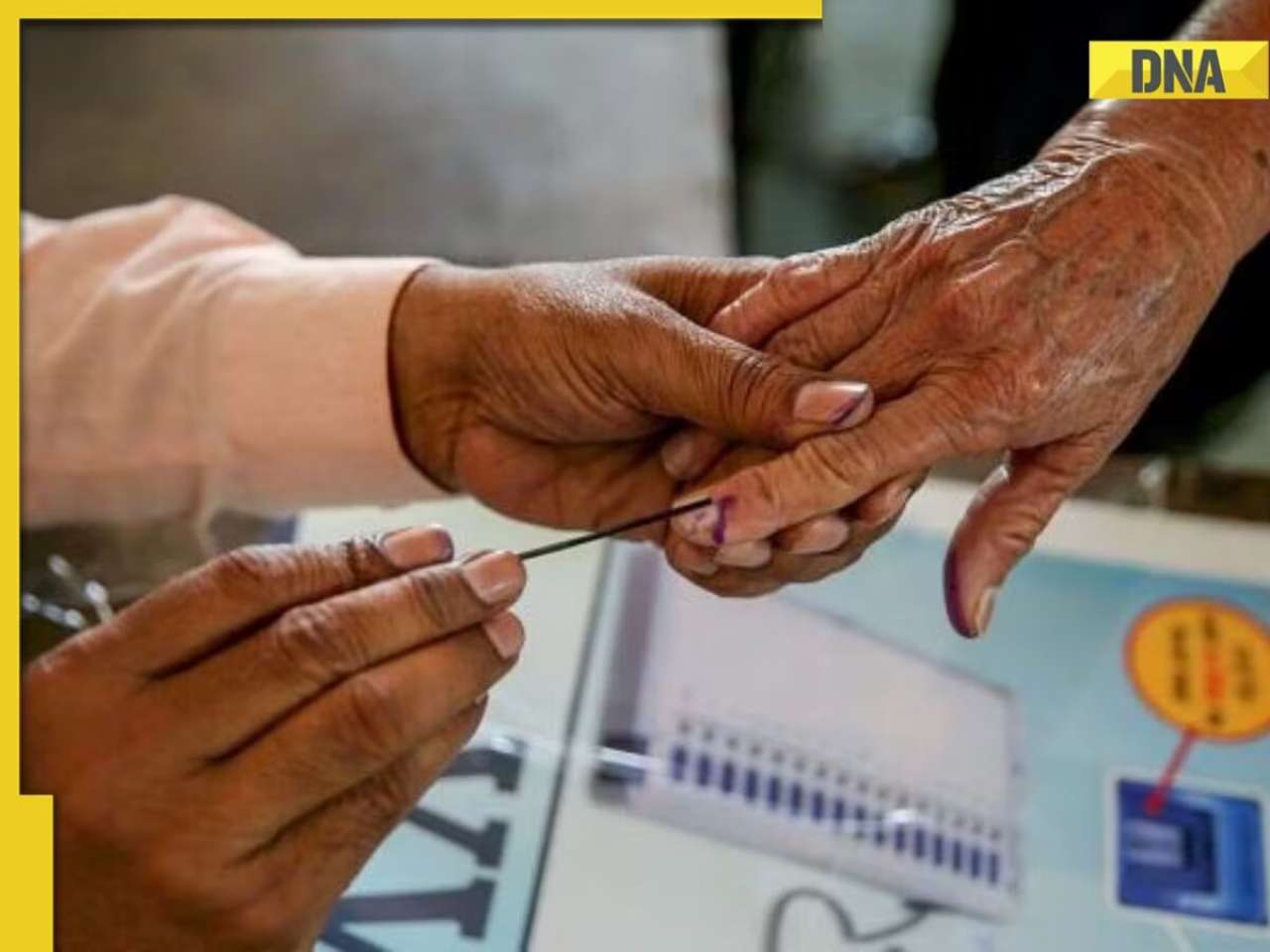
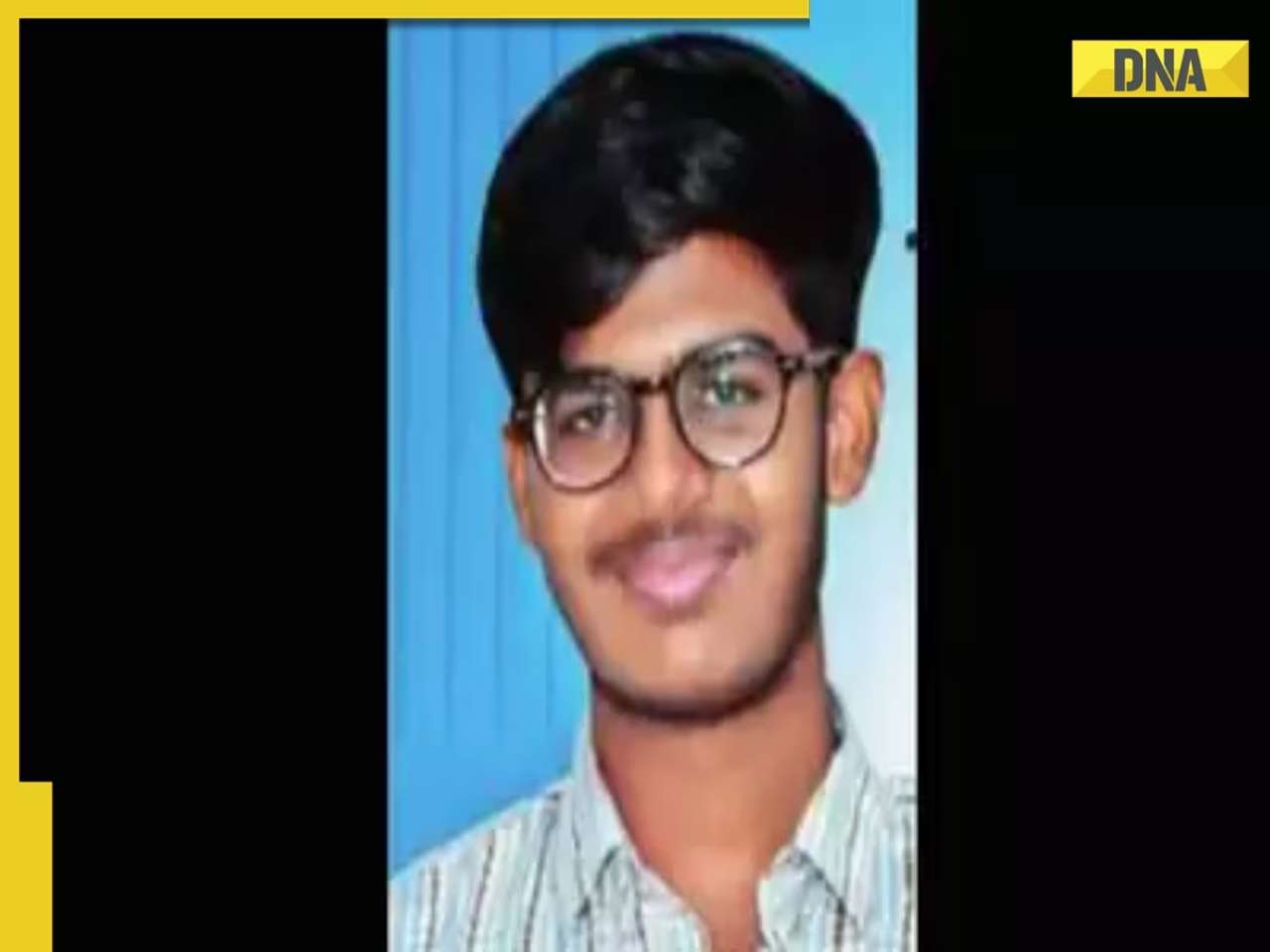













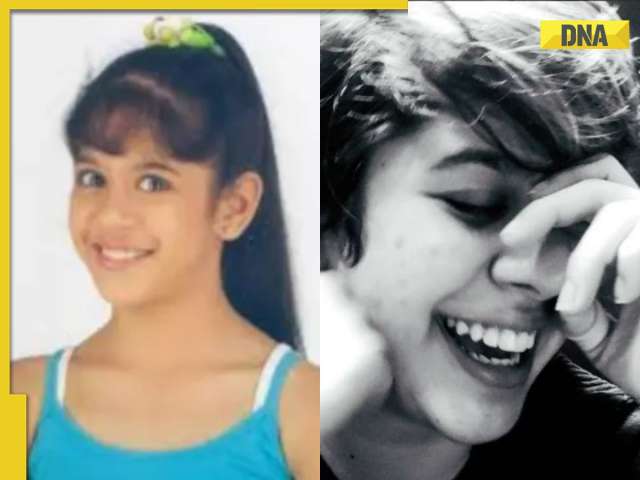





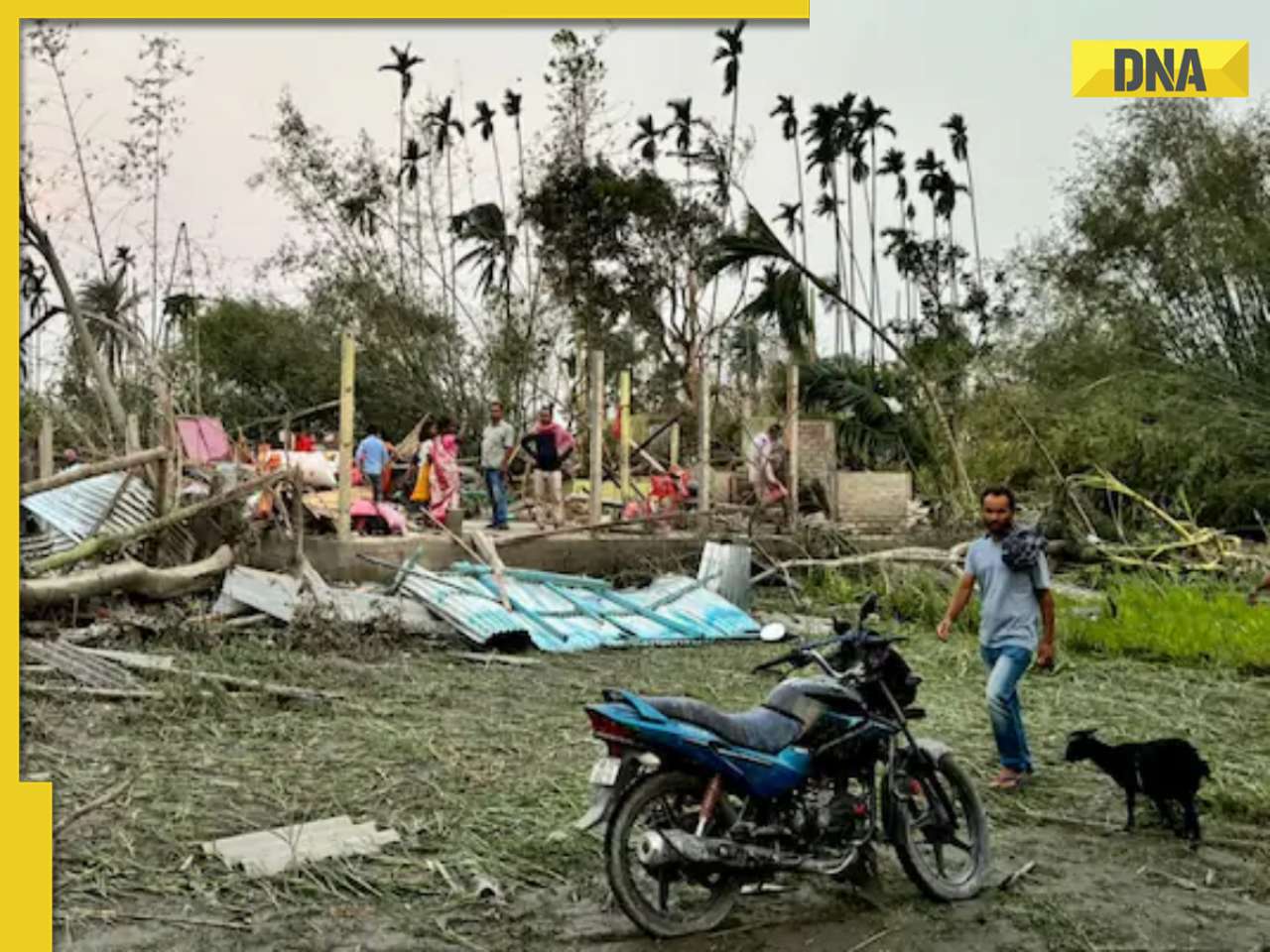
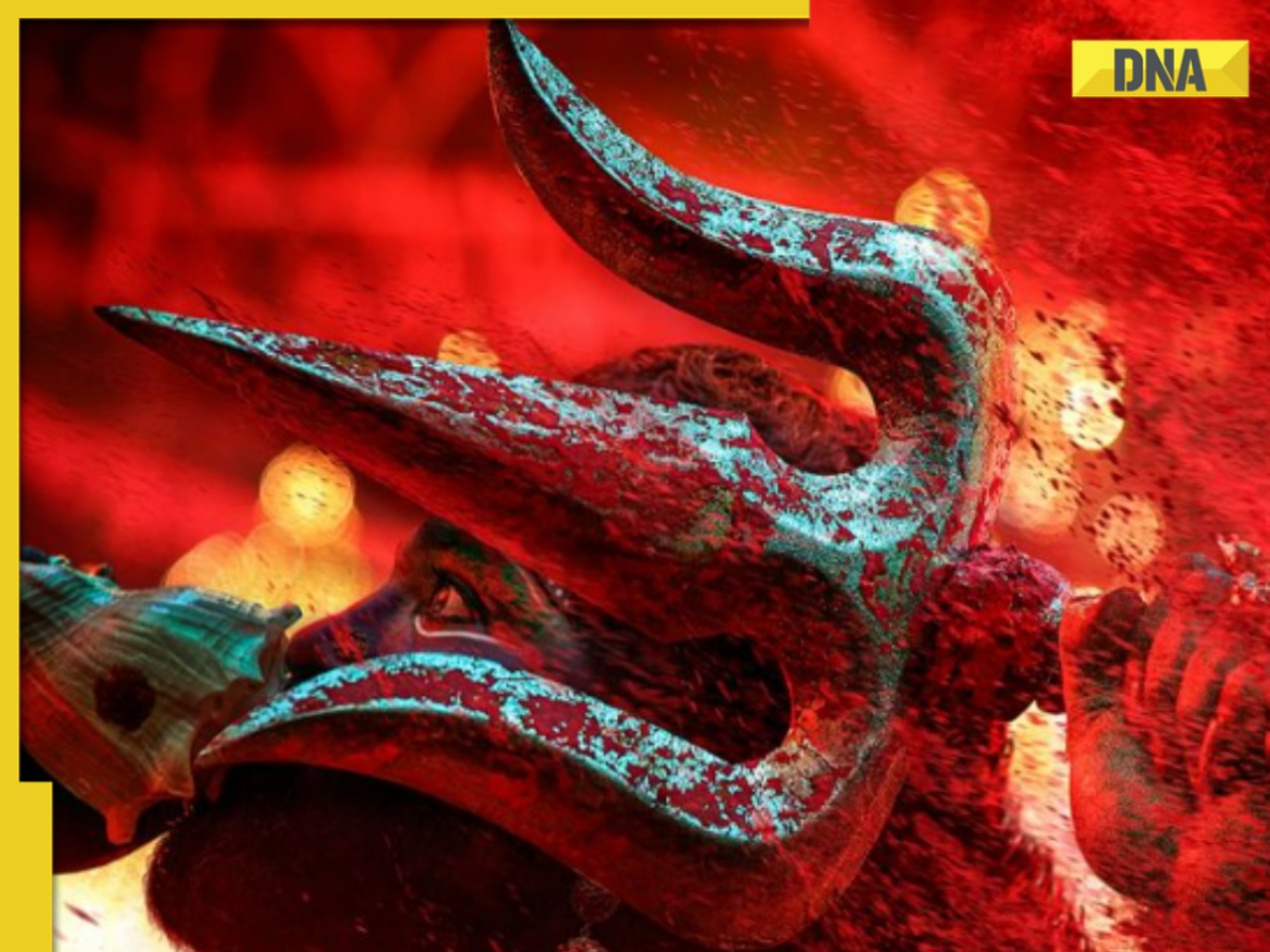
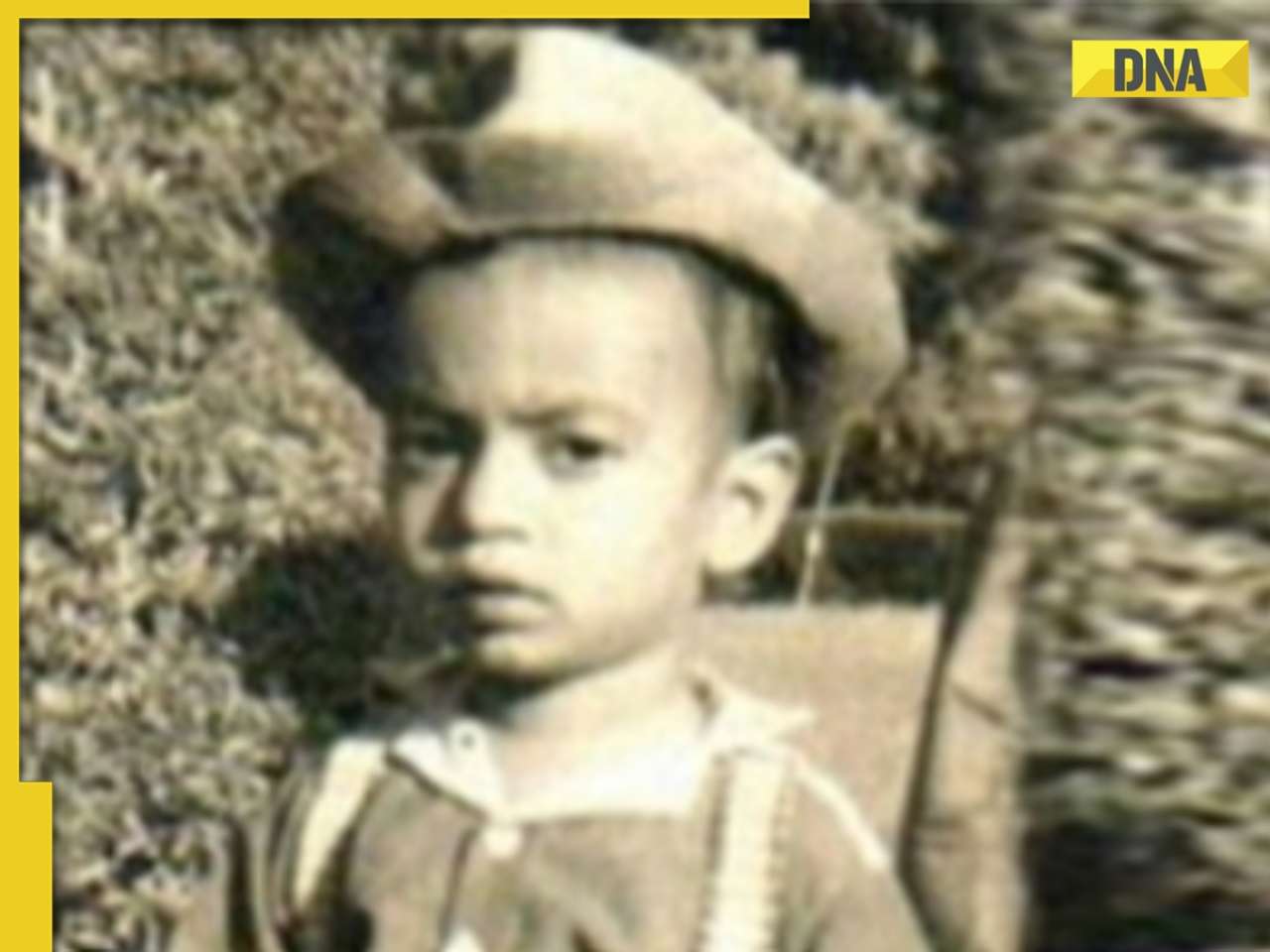

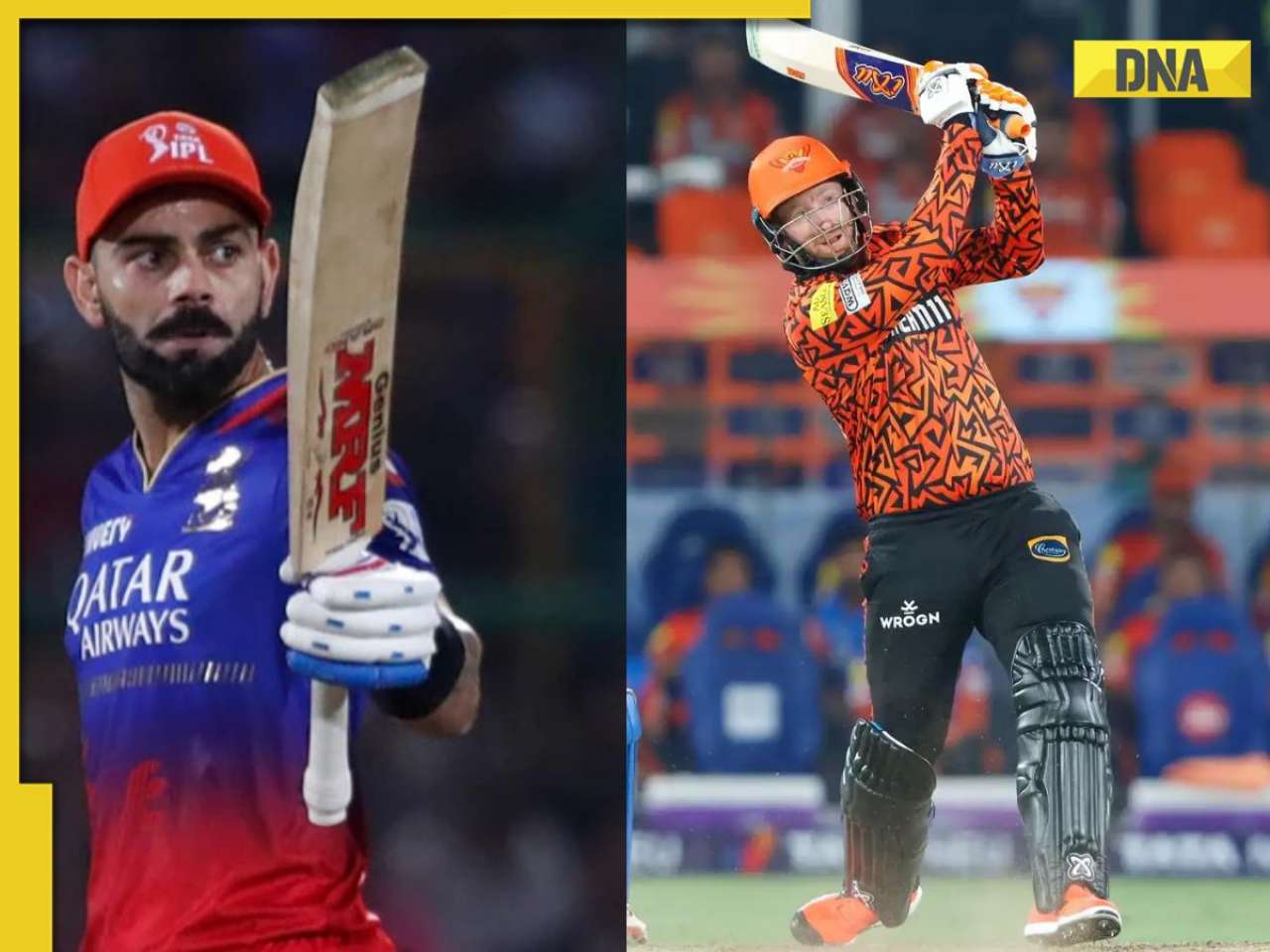
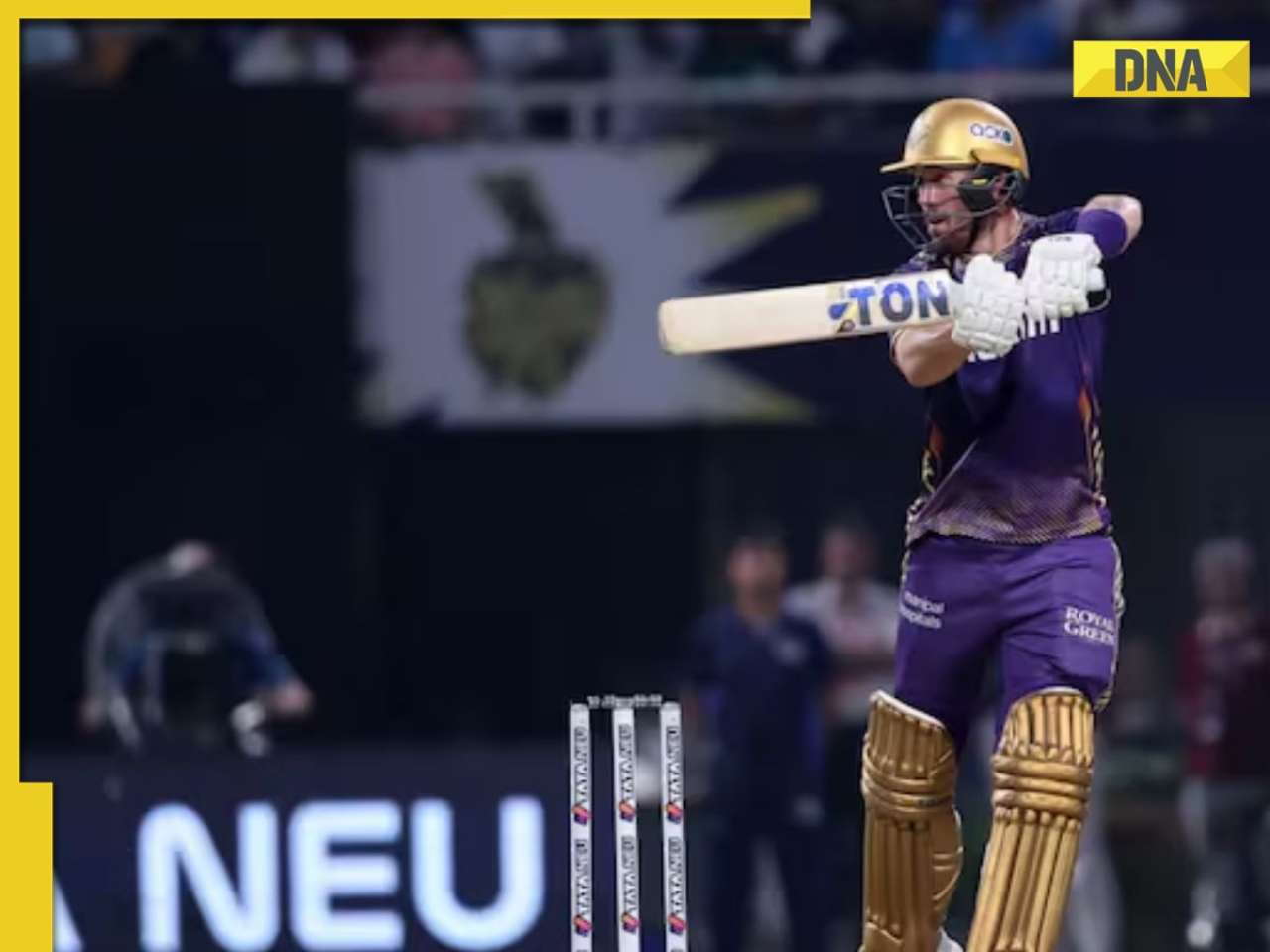
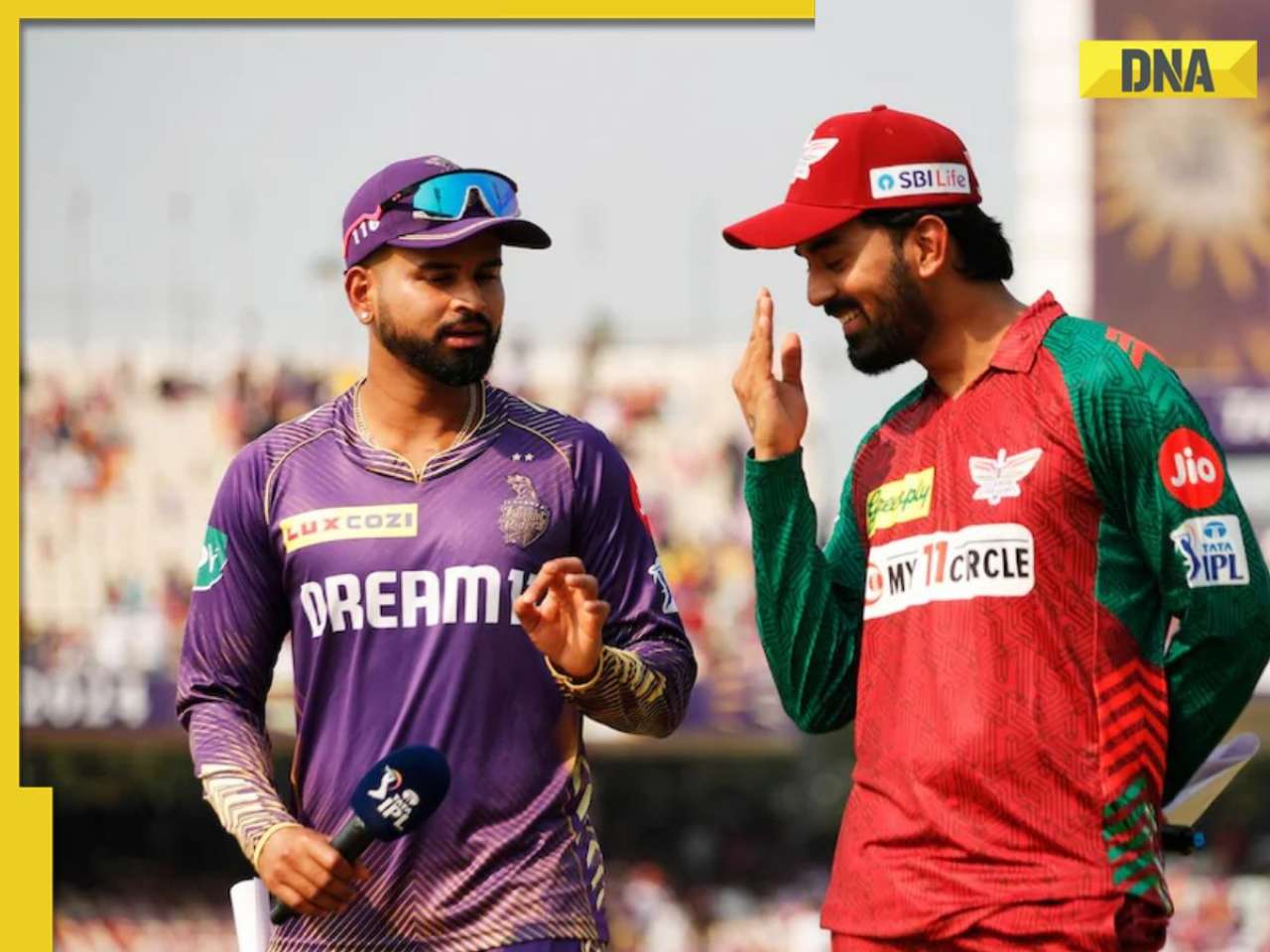
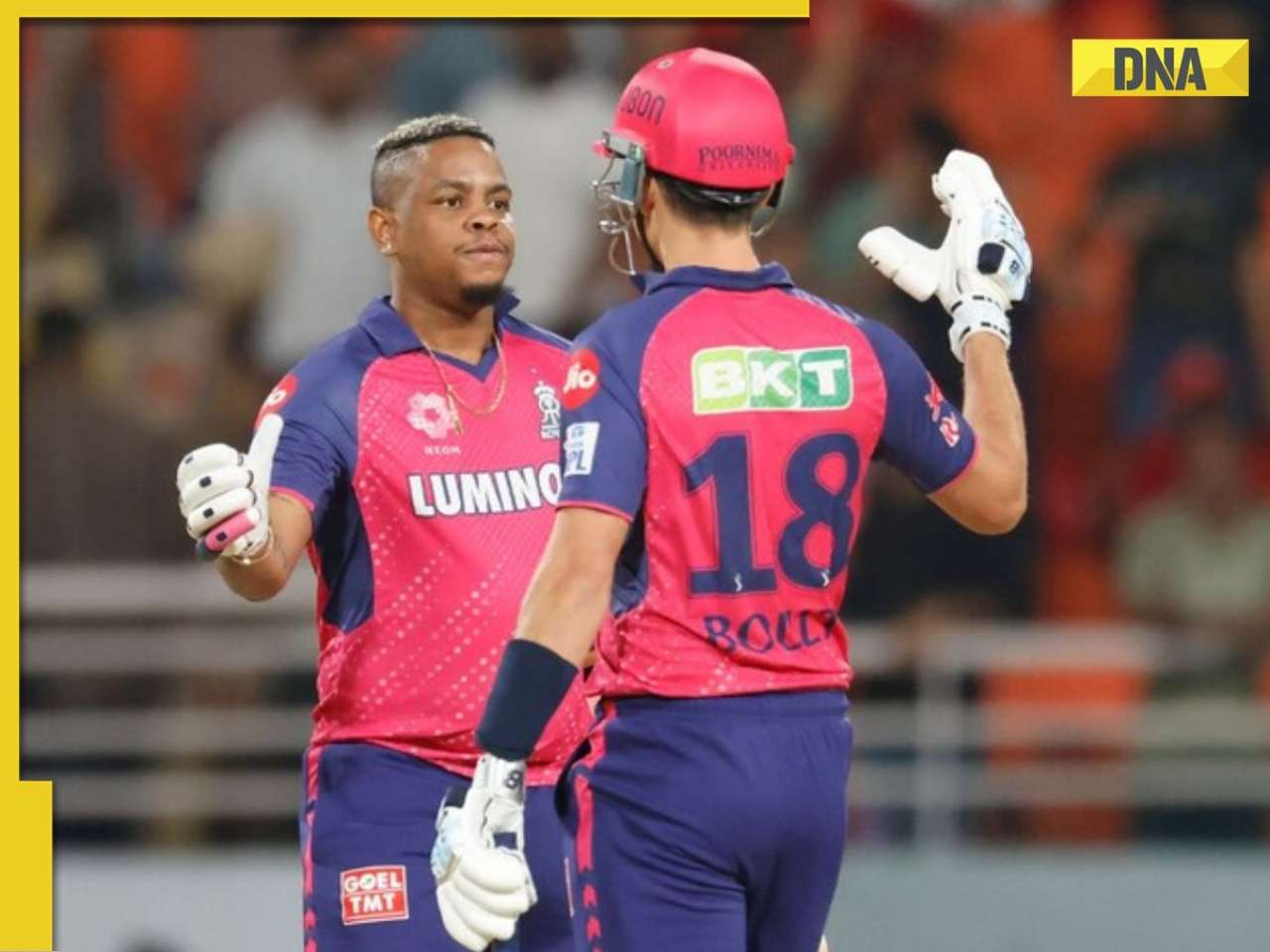











)
)
)
)
)
)